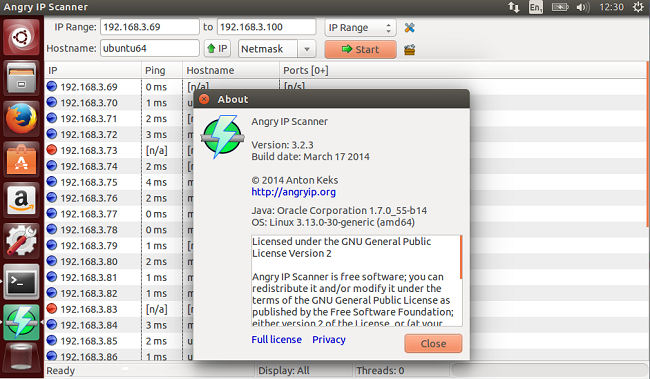
ICMP scan: This is not a port scan, but it is used to ping the remote host to check if the host is up. Since there is no response from the open port, the scanner has to resent the packet multiple times leading to the delay. The major drawback of UDP scan is the scan is slow. If the port is open, the packet is accepted, and no response packet is sent. The port is considered as closed if the scanner receives the ICMP port unreachable error. UDP scan: UDP scan sends the UDP packet to every port in the scope of the scan. The disadvantage of this scan is it can be detected easily as it connects to each port. This method is faster than other methods mentioned in this article. If the port is closed the response from the remote host will be RST packet. The scanner complete the connection by sending the ACK packet. If the remote port responds with a SYN-ACK packet, that means the port is open. In this scan, the attacker sends a SYN packet to the remote port. If the port is listening, connect() will succeed. TCP Connect or Vanilla scan: In the connect scan, the OS sends the connect() system call to remote host. If no response is received after multiple tries, the scanner marks the port as filtered. open while an RST (reset) indicates the port is not listening i.e. The SYN-ACK packet from the target port indicates the port is listening i.e. In this scan, the scanner sends a SYN packet to initiate a communication and wait for a response. TCP SYN scan: SYN scan is also known as half-open scanning as it doesn’t connect completely to the port. Let’s look into each scan type in detail. There are multiple port scanning techniques available.

These ports lie in the range of 1024-49151. Registered ports: These ports are associated with certain protocols or application.Well known ports: These ports are in the range of 0-1023.There are total 65536 ports each for TCP and UDP protocol which are divided into three ranges: Filtered port: There is no reply from the remote host.Closed port: The remote host sends a response indicating the connection is denied.

#Angry ip scanner plugins full
The full source code is available, see the download page. In order to increase scanning speed, it uses multithreaded approach: a separate scanning thread is created for each scanned IP address. Anybody who can write Java code is able to write plugins and extend functionality of Angry IP Scanner. With help of plugins, Angry IP Scanner can gather any information about scanned IPs.

Scanning results can be saved to CSV, TXT, XML or IP-Port list files.
#Angry ip scanner plugins windows
It also has additional features, like NetBIOS information (computer name, workgroup name, and currently logged in Windows user), favorite IP address ranges, web server detection, customizable openers, etc. The amount of gathered data about each host can be extended with plugins.
#Angry ip scanner plugins mac
Not requiring any installations, it can be freely copied and used anywhere.Īngry IP scanner simply pings each IP address to check if it’s alive, then optionally it is resolving its hostname, determines the MAC address, scans ports, etc. It can scan IP addresses in any range as well as any their ports. Angry IP scanner is a very fast IP address and port scanner.


 0 kommentar(er)
0 kommentar(er)
